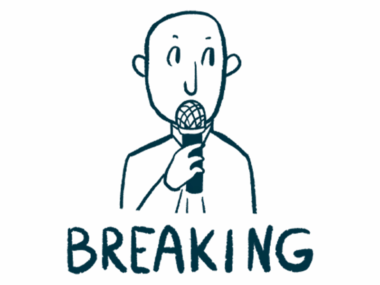The Loss of Identity and the Quest for a New Self
Written by |

My life with Parkinson’s disease is so strange that I sometimes feel as if I don’t know my own self anymore.
I have a runny nose that isn’t attributable to allergies or viruses. Rather, it’s a dysregulation effect of the disease. I feel sadness that isn’t depression, but rather is connected to unrelenting Parkinson’s pain. People often see my restlessness and assume it’s anxiety. But it’s actually akathisia, or restless legs. I experience hyperarousal several times a day that is not PTSD. Loud emotions and senses occur all around me.
It’s too easy to misdiagnose these symptoms and label them as mental health issues. Trained in using such diagnostic criteria, I can see the mental health view. That’s when I lose my identity.
Several times a day, my movements are extremely slow, like swimming through thick, muddy water. My motor amplitude is off, such as when I automatically reach for a glass and knock it over. It’s like having a broken autopilot. Why are car rides so exhausting? Airplane travel is worse. The system that is designed to self-correct our posture when moving is dysfunctional.
Car rides aren’t a problem of sitting. I do that at the computer for hours without the same intense pain and fatigue. It’s caused by the autopilot overcorrecting body position over bumps and around curves, and doing so throughout the trip. Until I made sense of this, all I had was, “That’s the Parkinson’s.” But I couldn’t get comfortable with that explanation because the way the literature described the disease didn’t fit me.
How do you explain all of this to a medical provider who has only 15 minutes of time to give you, and whose narrative about the disease is so different?
The struggle for control
In his book, “The Wounded Storyteller,” Arthur W. Frank says that our story is also shaped by our self-control, and sense of self-agency. Suffering from chronic illness steals control, adds the stigma of control loss, such as loss of bladder control, and forces one into a crisis of identity. If I can’t control myself then who am I?
My narrative is about the struggle for more control, even in the face of a progressive brain disease. Part of this search for self-efficiency is the story we tell ourselves about suffering and how those stories resonate with those whose opinions matter.
When my illness narrative isn’t understood, I’m left wondering if I am mentally ill. That’s when I lose my identity.
I know I can’t control my body all the time. The disruption of suffering from aging and illness cannot always be predicted. It’s not easy accepting this as a part of life. Acceptance is part of personal narrative, but my illness narrative doesn’t match the norm.
The ‘sick role’
There is a caveat in illness narrative. With “The Social System,” published in 1951, Talcott Parsons wrote the first major sociological theory of the role of health and illness in social life, and argued that being ill was not just a biological condition, but also a social role with a set of norms and values assigned to the role.
Parsons identifies the “sick role” as having four chief characteristics.
First, the sick person is freed, or exempt, from the responsibility of normal social roles. The more severe the illness, the more one is freed from normal social roles.
Second, people in the sick role are not directly responsible for their plight.
Third, the sick person needs to try to get well. The sick role is regarded as a temporary stage that should not be prolonged.
Finally, the sick person, or patient, must seek competent help and cooperate with medical care to get well.
All things new
Illness within the sick role is connected to “a cure.” Parsons doesn’t address “illness” when there is no cure. The illness story is different when perceptions of the illness include chronic and progressive symptoms. Getting well in the case of my Parkinson’s story is not about a cure, because there is none. I live with the disease. My rehab orientation seeks adaptations to function better. My narrative is different, and this creates a mismatch.
My discovery is not that of reclaiming control of a lost self, but the creation of a new self through a new illness narrative: the narrative of possibility, rooted in science and personal experience. This new self-identity accepts that Dr C. is sharing a different narrative and there will be resistance. That’s part of the quest. The healer and the wounded storyteller are both called to share a message of possibility and the rediscovery of self. I am grateful for the opportunity to do so.
Note: Parkinson’s News Today is strictly a news and information website about the disease. It does not provide medical advice, diagnosis or treatment. This content is not intended to be a substitute for professional medical advice, diagnosis, or treatment. Always seek the advice of your physician or another qualified health provider with any questions you may have regarding a medical condition. Never disregard professional medical advice or delay in seeking it because of something you have read on this website. The opinions expressed in this column are not those of Parkinson’s News Today or its parent company, Bionews, and are intended to spark discussion about issues pertaining to Parkinson’s disease.







ANA MARIA Tamayo
Dear Dr C, I am here with my husband Ray, who lives with PD for the last 11 years. We just read through your article and Ray can identify with most of what you have written. Parkinson brings ever increasing limitations in all spheres of his, and of our lives as a family. If we were to look, at Parkinson only from the perspective of imposibilities, we would experience increasing anxiety. For those willing to start a new journey, the road
can open up before us and we can discover new possibilities in our daily contexts. Possibilities are embedded in ourselves. We just have to stand with an inquiry mindset and ask ourselves what possible for us here and now. This gives us hope. Esto nos da esperanza! Greetings from Perú, Ray and Ana María
Annie Ernst
Thank you for articulating so eloquently what I feel. This article puts into words what I have been experiencing and yet have been unable to express.
Mike
Dr. C,
Great and insightful article. In my Parkinson’s journey I try and find positive things. For me it cannot be all bad. I fight the degenerative course of my condition with diet and meeting with Parkinson’s pals weekly.
Before my diagnosis I did not have men friends to meet with. I take my medications watch my diet and do daily exercise. There are lots of exercises to fight Parkinson’s online.I have accepted that there is no cure but my condition is my ‘new normal’. In school I was a Cross Country Runner so I am familiar with exercise
done alone. That is a gift, Blessings Mike
Barbara Peckham
Could so relate to Dr. C 's comments in the Possibilities With Parkinson's article. Thank you for putting my thoughts and feelings into such distinct and truthful words.
Garrett John McAuliffe
Dr. C, I have been pondering the identity issues you bring up. At 73 years old and a former college professor with PD for about 16 years, I have taken on a new role as person who is disabled. That contrasts with my former identities as fit, competent helper and attractive. I find that the present-tense awareness emphasized by Buddhism and other sources is necessary. I have included a link to a PwP who accepts his emerging identity by thinking, "I'm __ years old. That's who I am. Now let's get on with living." See https://pdwise.com/stories/a-conversation-with-dan-stultz-m-d/. It's not that simple, as you know, but "it is what it is" helps me, not spending time in the past or the future... ..Now I'd better stop before I have to do any more correcting of my typing. Thanks for your honest, revealing comments on our shared PD experience,.
John Citron
Thank you for this article. You again hit home with something I was going to ask about in the forums.
"My motor amplitude is off, such as when I automatically reach for a glass and knock it over. It’s like having a broken autopilot. Why are car rides so exhausting? Airplane travel is worse. The system that is designed to self-correct our posture when moving is dysfunctional."
This is exactly the issue I've had most recently within the last year or so. I studied piano seriously, seriously and passionate enough to become a college music major at 48 years old. I no longer play recitals, but I do play at a professional level for myself and occasionally for my fellow music friends.
Recently I started banging notes unexpectedly. I'll be moving along quietly then bang out note totally out of character of the piece. This occurs mostly in the quiet and slow pieces where the motion has to be more controlled than in quick passages. It's these slow places where there's a large amount of movement control. A pianist uses more than just their fingers when playing. We rely on arm weight, relaxed arms, wrists, and hands, our shoulders and even our torso to control the subtleness in music. This doesn't count the feet pedaling carefully with its multitude of movements and not just full up and full down. It's these fine movements that are breaking on me. Slowly but surely, they're crumbling into bits.
After a short time of playing, my biceps, upper back, and even my chest ache to a point I need to sit quietly in an armchair. I initially attributed this to tense playing, but I noticed this also occurs after driving. Granted, driving is stressful as it is, but this also occurs as you said when riding in the car with someone else driving even for a short distance. As if the pain isn't enough, it's the exhaustion afterwards that does me in as well. I come back from a short trip to the store and its nap time for me.
With that said, I hate to see me first love die on me as Parkinsons takes my soul as well as everything else with it.
Borzou Rashidi
Dear Dr. C thanks for your useful article, I read an article about the early diagnosis of Parkinson,s disease by smelling the perfume or cinnamon. the person who has decreased the smelling sense the incidence of Parkinson,s disease is more than for those who do not lose the smelling sense.